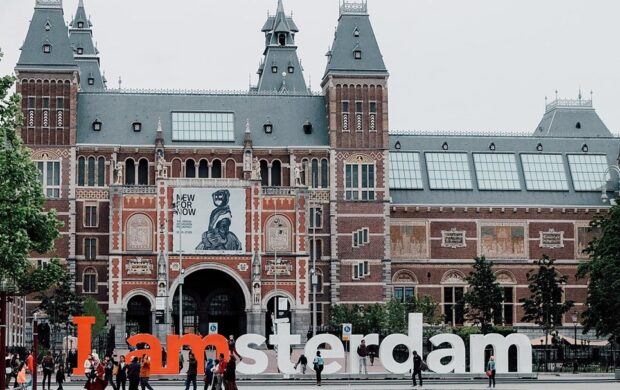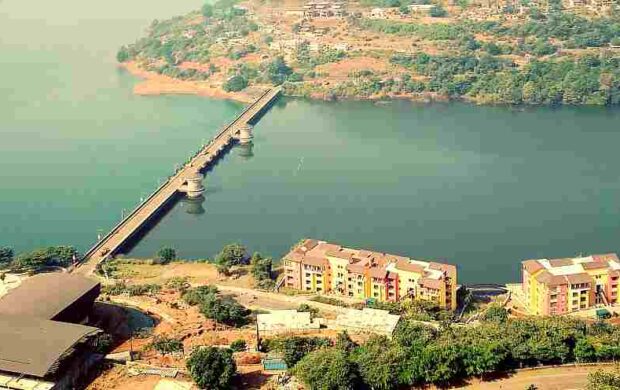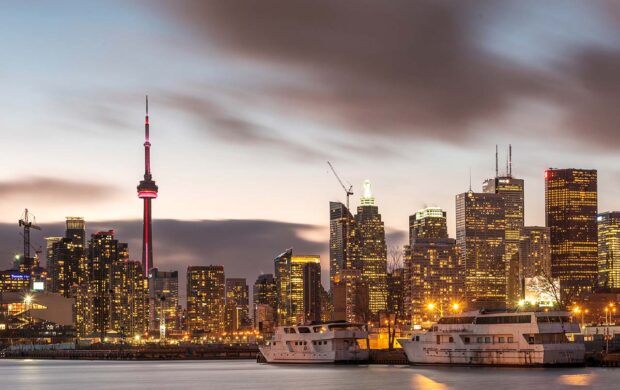Will governance be digitally-dominated, with instant feedback and algorithms reinforcing divisions? Will we see the invoking of emergency powers and the surrendering of democratic choice in the face of climate disasters? Or will citizens enjoy participatory discussions rooted in place and respectful of future generations?
As part of our The City in 2040, series at Cardiff University, we held an event looking at ‘Governing the Future City’ with participants examining how urban governance will evolve, particularly in the light of the existential challenges that climate change poses for cities.
Where power sits
City administrations will face a world of increasing complexity and uncertainty. Responses will need to flow from the national, through the city, to the neighborhood-level, and back again. In the UK, we have seen piecemeal and patchy devolution of powers to cities. A greater recognition of the importance of place-based responses to economic social and environmental challenges may see this change. City leaders will be making their voices heard at the climate negotiations this November and are increasingly recognised as not just as vital vehicles for delivery, but as deserving a greater say on, and control of, policy. We will certainly need new and better forms of cooperation between the different layers of government and regulated infrastructure.
“Technologies that allow people to have conversations in digital publics that are driving towards consensus building”
Will government or business run the city? More and more functions previously delivered by the public sector will be privatised: services outsourced, utilities privately run, the public realm privatised. And not only will digital technology displace or disintermediate functions previously done by the state, it will also increasingly provide the space for, and define the parameters of, public discourse. Anthony Townsend, President of Star City Group and Urbanist-In-Residence at Cornell Tech said: “There has been a proliferation of digital realms for people to engage each other, but unfortunately the dominant practice has been to use digital tools to separate people into smaller and more divided interest groups.” He would be excited to see more “research and experimentation with technologies that allow people to have conversations in digital publics that are driving towards consensus building.”
Generational conflict?
Demographically, we know metropolitan areas will have ageing populations. In the UK, by 2030, one-in-five people will be aged over 65. Cities will have a greater proportion of older people, many of whom own their own homes, may stay on longer in work, and are usually better at turning out to vote. Will the urban young, struggling to find affordable homes or decently paying jobs, paying and caring for this ageing population, and without adequate political representation, grow resentful? And when the harsh realities of a changing climate really start to bite, will they be furious about the legacy left to them? Unless we get better at thinking about future responsibility, we may see intergenerational strife playing out in our cities and urban politics.
“When the harsh realities of a changing climate really start to bite, will they be furious about the legacy left to them?”
“Unfortunately, we’re not very good at thinking about responsibility to future generations,” said Jane Davidson author of #futuregen and an instigator of the pioneering Wellbeing of Future Generations Act. “Wales pioneered the Wellbeing of Future Generations Act to rectify this, but at the moment, is the only country in the world that has such a law”.
A digitally-enabled future
Our urban future will be heavily mediated by digital technologies. Cities and their administrations do need to harness digital tech — in the form of big data, internet of things, transport algorithms and wearables — to give citizens information, enable choices, and make infrastructure work better. Navigating London is so much easier and quicker with apps like City Mapper. The London Borough of Sutton will run their greenspaces better by using sensors to track footfall and where users go in their parks.
As well as improving city services and infrastructure, these technologies can be very democratising, enabling new forms of participation and feedback.
“Too often, city administrations are struggling to keep up with the opportunities and challenges posed by digital technologies”.
However, too often, city administrations are struggling to keep up with the opportunities and challenges posed by digital technologies. Digital platforms are already changing the way we use our urban spaces: AirBnB for staying; Tinder for dating; Deliveroo for eating; Uber for moving. This is only going to increase.
Taming urban tech
Who will control the development and deployment of these technologies in the metropolitan arena? Anthony Townsend is clear that “We need to tame tech in the city and also need to tame the technology companies.” He added, “We’ve seen just so many examples in the last several years of tech companies overstepping the mark — from Cambridge Analytica affecting how we make democratic decisions to Uber affecting how we move about. These platforms primarily operate in urban markets and are often competing with or replacing government services or doing things that that used to be regulated”.
An example of a city administration trying to make sense of the chaos unleashed by mobility platforms is the Mobility Data Specification (MDS) promulgated by the Los Angeles Department of Transportation. This aims to facilitate the exchange of anonymised data between transport operators and municipal transport departments. Uber have fought this tooth and nail, raising questions about privacy rights, but the approach appears to be spreading to more US cities.
Authoritarianism
There is a risk that an increase in extreme weather events, population movements, and shortage of essentials, driven by climate change and other environmental and social pressures, provoke an autocratic response. Threats and risks — real or perceived — might arouse populism and authoritarianism.
“Threats and risks — real or perceived — might arouse populism and authoritarianism”.
We have seen in the Covid pandemic, powers being grabbed and freedoms usurped remarkably quickly. There will certainly be more pressures, crises, and disasters to come, which may mean more powerful city-states exercising tough powers within their borders. Bernice Lee, Research Director, Futures at Chatham House recognised that people thinking about climate challenges sometimes “flirt with authoritarianism and look enviously at those governments which can just decide what to do, and do it.”. But, she cautioned “The course corrections we need are so big, we will not get them to happen unless people are engaged and supportive. The reality is that we have no choice but to bring people with us in all of these decisions, because all these decisions are major ones.
Design and participation
There are various tools to involve citizens in these discussions about the future. In the UK, the work trailblazed by Climate Assembly UK has sparked citizens’ assemblies across the country. While in Cardiff Bay, a place-based community engagement project called Ideascape invited people to explore and imagine the types of ‘smart’ environment they wanted now and in the future.
In Japan, Future Design is a pioneering participatory and place-based process to engage with the future. Residents begin by discussing the issues from the perspective of today. Then, they are asked to don ceremonial yellow robes and imagine themselves, still at their current age, as residents in the year 2060. By imagining how their decisions today will impact on the lives of someone like them in the future, they reach for much more radical and transformative solutions. The Future Design process, created by economist Tatsuyoshi Saijo, is spreading to cities across Japan.
Governing for the long-term
Participants recognised that it is really difficult to think about, and govern for, the long-term. “We need long-term planning,”, said Bernice Lee, “A lot of the challenges come from our inability to translate some of these long-term needs into bite-sized pieces so they seem more attainable. And ultimately we need to describe what lies on the other side of the Rainbow, as we have tried to do in our project, Futurescape, about the future of central London”.
“A lot of the challenges come from our inability to translate some of these long-term needs into bite-sized pieces”
Jane Davidson called out “the fact that we don’t factor future generations into our thinking, that we make short-term decisions, that we don’t even factor in the future generations currently alive, let alone the ones yet to come.” She described how the Wellbeing of Future Generations Act is “requiring public services to take their decisions in ways that are long-term, preventative, involve collaboration with each other and the politics of co-creation”
Some cities, like Singapore do long-term planning very well. When the Singapore Government celebrated 50 years of independence in SG50 a few years ago, they immediately started to discuss SG100. Not many cities have Singapore’s advantages of being both a city and a country, and many have more democratic and pluralistic governance, but it was felt that there are lessons to be learned.
Dr Juliet Davis, Head of School, Welsh School of Architecture, Cardiff University, suggested having “a long-term framework, with openness embedded in it, where the goals might be quite clearly defined, but there are multiple ways of reaching them, with freedom and flexibility to accommodate change.” She added, “We won’t get it right unless we begin to take more responsibility with regard to what is known and unknown about the future..and think about who is involved in building knowledge about the future, and what values are necessary in order to instigate and to follow through on action”.
“Make valuing the future a central part of the mind-set of those who govern our cities today as well as those who live in them”.










Join discussion